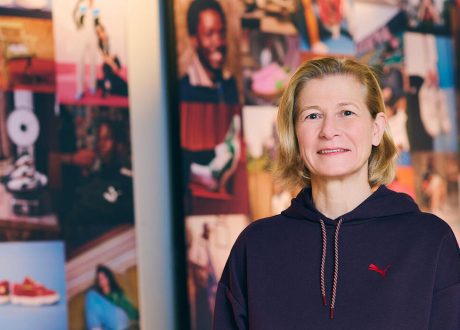
New ISO ESG Implementation Principles provide int’l guidance to streamline ESG practices
New ESG Implementation Principles launched the International Organization for Standardization (ISO) at the 29th United Nations ...

Bloomberg has named billionaires who made fortunes through contributing to addressing environmental issues, topped by climate change.
Four shareholders in China’s giant supplier of electric-vehicle batteries have built a combined fortune of $17 billion. An Australian businessman has created a $7 billion net worth from recycling. A ten-figure stake in a hydrogen fuel cell trucking company has minted an American billionaire.
These are among the 10 largest fortunes derived primarily from the growing business of climate solutions, according to data compiled by Bloomberg. With a combined green net worth of $61 billion at the end of 2019—about three times the market capitalization of oil services firm Halliburton—the billionaires on this list represent the emergence of a superrich vanguard in the fight against global warming.
The list exemplifies the green economy’s growing heft and diversity. It ranges from household names such as Tesla Chief Executive Officer Elon Musk to the lower profile founders behind some of China’s biggest companies. Their rise to the apex of capitalism has been underpinned by fervent investor demand.
Investments in businesses that address climate change or encourage sustainable practices are surging. Assets managed using a broad definition of this approach—integrating environmental, social, and governance factors into investing decisions—reached $30.7 trillion at the start of 2018, about a third more than two years earlier, according to a report funded by a group of financial companies, including Bloomberg News parent Bloomberg LP. The popularity of green investments, one of the fastest-growing areas in finance, is now so large that European lawmakers are working on rules to define them.
“Sustainability is now a key offering for many of our clients,” says Eléonore Bedel, head of sustainable and responsible investing and impact investing at BNP Paribas Wealth Management.
Researching the ranking revealed only a handful of climate-focused fortunes that crossed into ten-figure territory. In the next decade there are likely to be many more, including from startups developing solar-powered grills and electric planes.
Growing demand for plant-based foods could soon produce two billionaires: Beyond Meat founder Ethan Brown and Impossible Foods CEO Patrick Brown (no relation) both own stakes worth hundreds of millions of dollars in their respective companies. Both firms have created a market for a meat replacement that doesn’t come with the environmental cost of livestock, which accounts for 14.5% of global greenhouse gas emissions.
“There’s so much pent-up demand in ESG institutional money,” says Bill Tarr, co-founder of Motiv Partners. “When a Beyond Meat comes along, money floods in.”
It’s a shift from the narrative of wealth creation that dominated the 20th century. John D. Rockefeller became the first billionaire in history on the back of Standard Oil, followed swiftly by dynasties built on emissions such as the Fords and DuPonts.
But the carbon economy remains dominant. Oil tycoons, industrialists, and car titans make up more than a quarter of the world’s 500 richest people tracked by Bloomberg, including wildcatters such as Harold Hamm, refiner Mukesh Ambani, and BMW’s Susanne Klatten. The world’s most valuable company—by far—is newly listed Saudi Aramco, with its $1.8 trillion market cap.
Greenhouse gas emissions have risen at a rate of 1.5% a year over the past decade. Government funding for renewable technology has been shrinking, squeezing many of the fortunes on the ranking, while those backed by fossil fuels have enjoyed a renaissance these past few years. Aloys Wobben’s wind turbine maker Enercon has said it faces “grave” challenges to its business in German after a nationwide wave of legal challenges launched against new wind parks choked orders.
“Green wealth is highly dependent on innovative technologies succeeding, which means these fortunes can be wiped out in a heartbeat,” said Kingsmill Bond, energy strategist at Carbon Tracker, a think tank that examines the impact of climate change on capital markets and investment in fossil fuels. “But people who successfully carve out new niches in this new economy will be the owners of the wealth of the future.”
Take Mário Araripe, a Brazilian tycoon who first built a fortune in property before being converted to the lucrative promise of wind power. “Brazil’s national anthem says the country is a giant by its own nature,” he said in 2017. “People always thought that was because of gold or other underground treasures, but I don’t believe that. I think it’s because there’s wind.”
Such sustainable fortunes are likely to be bolstered by capital. Investors—especially the family offices of the super rich—are increasingly making sustainability central to their strategies. TCI Fund Management, the company that hedge fund manager Christopher Hohn runs, recently warned companies in its portfolio to step up their climate change action or risk divestment.
If such a sentiment continues to take hold, it could eventually remake the world’s wealth rankings.
New ESG Implementation Principles launched the International Organization for Standardization (ISO) at the 29th United Nations ...
PUMA has already made strong progress in reducing its greenhouse gas emission over the past ...
The United Nations Trade and Development (UNCTAD) urged during the 29th United Nations Climate Change ...


اترك تعليقا